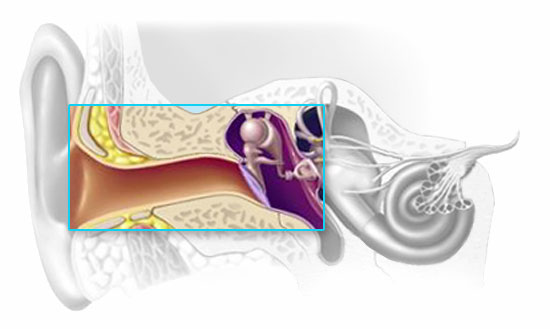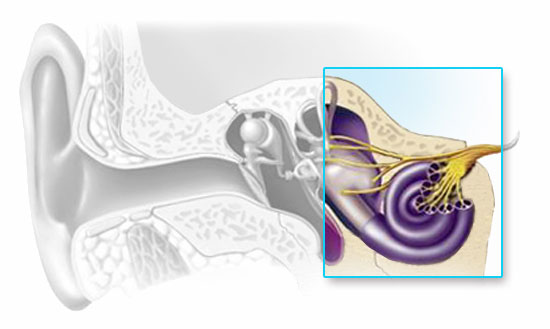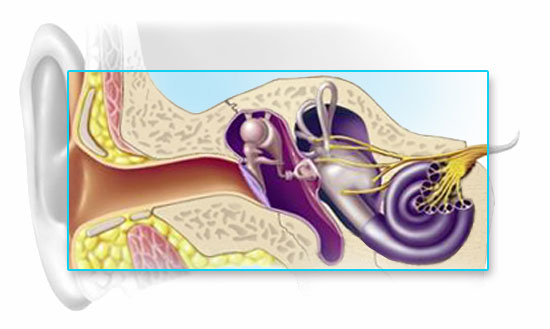Understanding Hearing Loss
If any part of the hearing system is unable to function, the result is hearing impairment. If you or a loved one are experiencing muffled hearing, please see your doctor or give us a call right away. Only a thorough, professional ear exam and hearing assessment can accurately determine what is causing the problem. A sudden change in hearing may be an emergency.
Conductive Hearing Loss
Conductive hearing loss is caused by any condition or disease that impedes the conveyance of sound in its mechanical form through the ear canal and middle ear cavity to the inner ear. A conductive hearing loss can be the result of a blockage in the external ear canal (e.g. by ear wax) or can be caused by problems with the tiny middle ear bones (ossicles). Conductive hearing loss often results in a reduction of sound volume and difficulties in hearing faint or distant sounds, but it may be medically or surgically treated depending on the underlying cause.


Sensorineural Hearing Loss
Sensorineural hearing loss results from inner ear or auditory nerve dysfunction. The sensory component may be from damage to the hair cells or supporting cells of the inner ear, or to the cells of the auditory nerve. This type of hearing loss is usually permanent and can affect one’s ability to hear faint sounds, understand speech clearly particularly in complex listening environments, and distinguish between different frequencies. Sensorineural hearing loss is commonly caused by factors like noise exposure, aging, genetics, infections, and certain medical conditions. While it can’t always be reversed, it is often managed with hearing aids or cochlear implants to improve auditory function and quality of life.
Mixed Hearing Loss
Mixed hearing loss, as the term suggests, is a combination of two types of hearing loss: conductive and sensorineural. This means that a person with mixed hearing loss experiences issues in both the outer or middle ear (conductive) and the inner ear or auditory nerve (sensorineural). It can result from a variety of factors, such as a long-standing ear infection, ear trauma, or the presence of underlying medical conditions affecting both the conductive and sensorineural components of hearing. The treatment for mixed hearing loss depends on the specific causes, and it may involve a combination of medical intervention, surgery, and hearing aids to address both types of hearing loss simultaneously.

Book Your Hearing Health Check Appointment
Book your appointment by calling or texting 1-833-669-4425.






